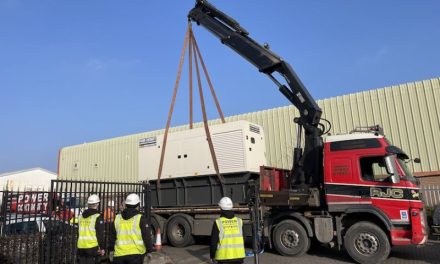 Mandatory carbon reporting requires action from all companies listed on the main London Stock Exchange and a new report by business and financial advisers, Grant Thornton UK LLP, highlights how enhanced sustainability reporting is influencing mid-tier businesses and public sector organisations.
Mandatory carbon reporting requires action from all companies listed on the main London Stock Exchange and a new report by business and financial advisers, Grant Thornton UK LLP, highlights how enhanced sustainability reporting is influencing mid-tier businesses and public sector organisations.
Over three quarters (80%) of companies with a turnover between £250m and £1bn have board level accountability for sustainability reporting, with over half (51%) of CEOs taking this on personally.
Up to 70% of these organisations also state that sustainability is either ‘fully’ or ‘partially’ embedded in their corporate financial targets and 92% state that sustainability performance is either ‘very important’ or ‘important’ to the overall success of their organisation.
As the largest listed companies look to reduce their own carbon impact by choosing suppliers offering more sustainable products, services and raw materials, mid-market companies recognise this will impact their business – 84% cite customers as a key audience to communicate the business implications of their sustainability efforts – second only to policy makers.
This is particularly important in the food and beverage sector which has the highest proportion of organisations (32%) with sustainability goals fully embedded in their supply chain management, reflecting the connections between consumer demand, food production, packaging and transport and the strategy of major retailers.
Despite recognising the commercial impact of carbon reporting, mid-tier organisations face challenges embedding sustainability targets throughout their business. The departments with the lowest score for ‘fully’ or ‘partially’ embedding sustainability in their function are sales, HR, and research and development. Given consumer concern about sustainability is growing and increasingly features in corporate purchasing decisions, these are areas for mid-tier organisations to focus on in order to generate revenue from sustainable products and services.
A large percentage of respondents (67%) already include sustainability information in some form of external reporting – either as a stand alone sustainability report or within their annual report, however, less than half (43%) are using independent external verification of their sustainability efforts to ensure it is accurate, complete and balanced.
Jane Stevensen, head of sustainability at Grant Thornton, commented, “Medium sized businesses are the backbone of the UK economy and the CEOs of these firms recognise the importance of sustainability and are taking personal accountability for this. The impetus of mandatory carbon reporting for larger firms will accelerate changes in business practice across UK plc. It is clear from this report that the mid-tier companies that take the initiative integrating and publicising sustainability alongside financial reporting will be able to differentiate their brands with investors, shareholders and customers. Embedding sustainability targets within key functions such as sales, research and development, and HR will also be vital in engaging staff and ensuring this is an integral part of business practice.”
To help motivate change in their companies, 51% plan to fully or partially embed employee recognition (without financial incentives) for incorporating sustainability into their strategy over the next two years. In terms of integrating sustainability into pay and bonuses, the most popular options are using executive bonuses (33% fully or partially embedding this in their business), promotion decisions (28%), employee bonuses (24%) and employee pay rises (21%).
The Grant Thornton report also asked mid-tier organisations what they felt were the most significant sustainability risks for them over the next two years. In order of importance, respondents cited carbon regulations, energy prices, water scarcity, environmental regulations, rising commodity prices, extreme weather and the risk of their products being substituted for more sustainable competitor offerings.
With these risks in mind, the key areas for capital investment over the same period are on-site renewable energy, video conferencing technology, projects to make buildings more energy efficient, data centre improvements, electric vehicles for the company fleet, software for energy and carbon management and finally, equipment to reduce industrial emissions.
Stevensen continued, “Carbon reporting may only be mandatory for LSE listed businesses but it is clear that mid-tier organisations anticipate its impact and potential extension in the future. For companies looking to capitalise on green growth opportunities, commercialising new products and services to help with carbon monitoring and reporting and energy efficiency are critical. Water scarcity and rising commodity prices are lower down the agenda but are likely to become more pressing for mid-market organisations over the next few years.”




